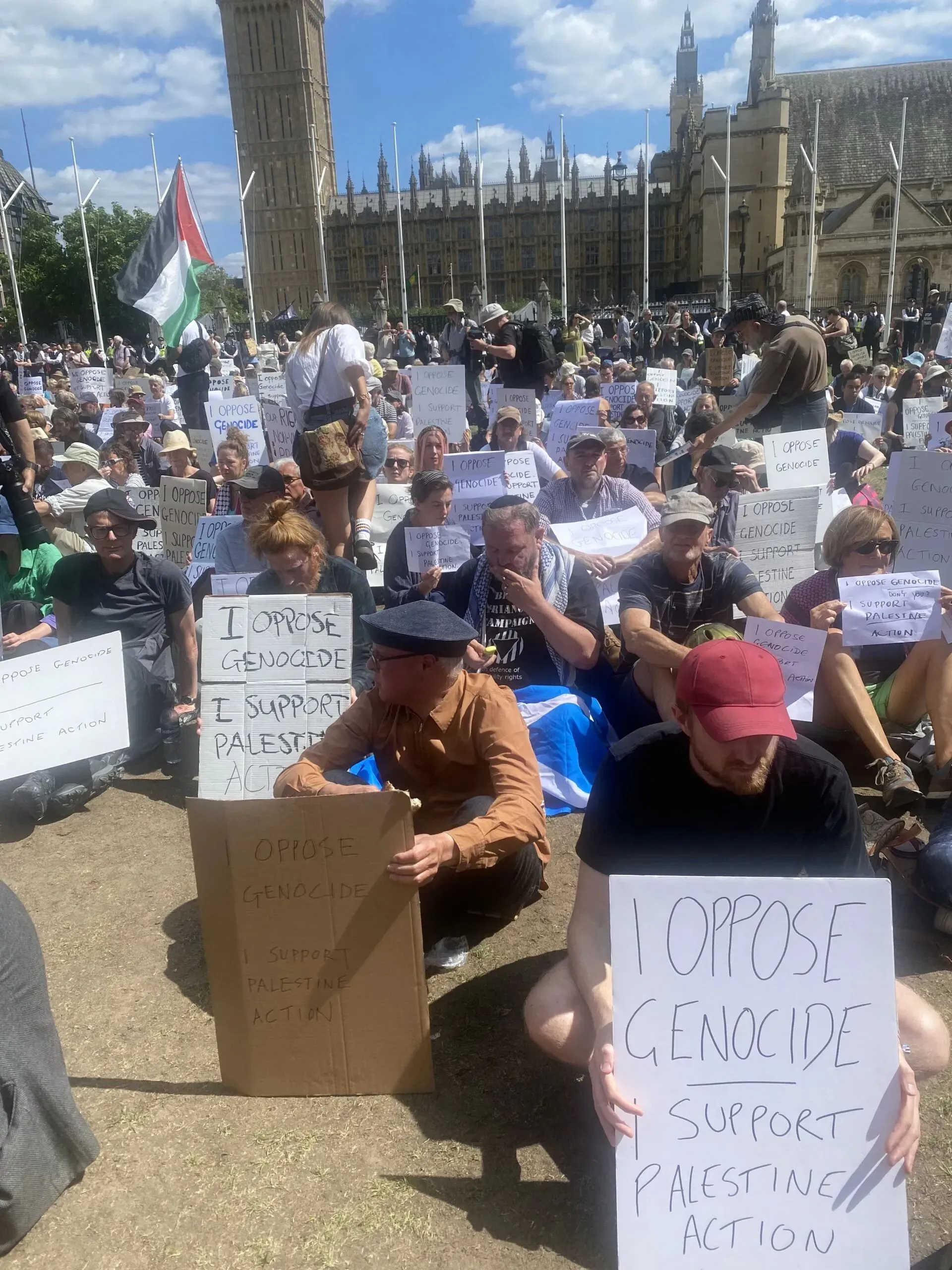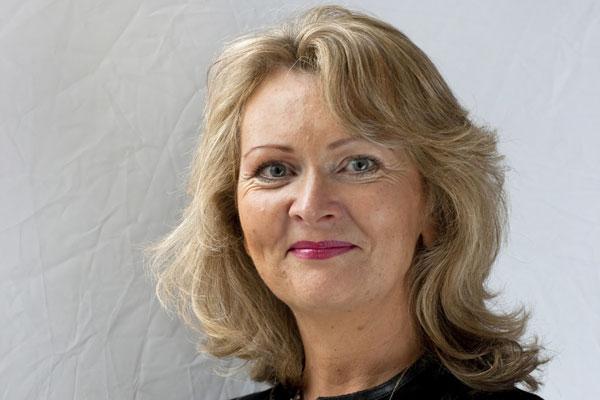Brady, RIBA president from 2011 to 2013, has spoken out following the arrest of architects on 9 August for displaying messages in support of UK-designated terrorist group Palestine Action.
The architect described the arrests as not only undermining the concern for human rights in Gaza, but also as a threat to freedom of speech in the UK.
She told the AJ: ‘As an architect, former president of RIBA and member of Architects for Gaza, but foremost, as a citizen, I am compelled to flag the oppression of liberty, humanity and agency.
‘We [Architects for Gaza] call for the immediate de-proscription of Palestine Action and the dropping of all charges against those supporters of Palestine, including many of our architectural colleagues, who should be freed from the threat of jail, criminal records and fines.
‘They stood up for humanity, justice and freedom and our human rights. The government, with its narrow vision, needs to recognise this.’
The protest saw hundreds gather in the streets of London to reveal items displaying support for Palestine Action in a coordinated demonstration. The Met Police then went into the crowds and arrested over 500 people, including architects Steve Fox and Nick Newman as well as former chair of the RIBA Procurement Reform Group Walter Menteth, and well-known academic Jeremy Till.
Those four have since hit out at what they call an ‘assault on democratic rights’ by the government.
Home Secretary Yvette Cooper announced that Palestine Action would be proscribed as a terrorist group in June, days after members of the organisation broke into RAF Brize Norton in Oxfordshire to spray two military planes in red paint, causing around £7 million of damage. Parliament overwhelmingly backed the classification in July.
The amendment to the Terrorism Act 2000 makes it illegal to be a member of Palestine Action, express support for the group, or arouse suspicion of supporting it.
Following the mass arrests, Cooper said: ‘Palestine Action was proscribed based on strong security advice following serious attacks the group has committed, involving violence, significant injuries and extensive criminal damage.
‘Many people may not yet know the reality of this organisation, but the assessments are very clear – this is not a non-violent organisation. UK national security and public safety must always be our top priority.’
At a meeting of Labour’s National Executive Committee, prime minster Keir Starmer is reported to have said that the group had a history of ‘break-ins, sabotage and targeting Jewish-owned businesses’, and that the decision to proscribe them as terrorists was not intended to stifle debate.
However, Brady called the proscription of Palestine Action a ‘grave error’ on the part of a government, which, she said, is ‘looking in the wrong direction’ and not ‘listening to their own people or to the world, who stand in outcry’ at the situation in Gaza.
The former RIBA president pointed to statements made by United Nations human rights experts expressing concern at what they called the ‘unjustified labelling of a political protest movement as terrorist’.
Liberal Democrat leader Ed Davey, speaking to BBC Breakfast, today called for the government to review terrorism legislation to ‘try to see if there are changes that can be made’ in order to avoid what he described as people being arrested ‘en masse’.
Encouraging people to speak out on the issues, Brady said: ‘Silence is not an option and nor is silencing the people who stand up for what is right.
‘This is particularly painful for those of us committed to architecture: a profession bound to imagine and create a better world.’
Brady also reiterated a list of demands for the RIBA. These were first published in June in a letter she co-authored for the campaign group Architects for Gaza, which was signed by over 775 architects and supporters.
The letter called on the RIBA to ‘publicly condemn’ Israel for its actions in Gaza, ‘adopt a boycott position’ against UK firms and institutions operating in ‘occupied territories’, and refuse to collaborate with Israeli state institutions.
The RIBA issued a response to these demands in June, which read: ‘It [the RIBA] is required to adopt an apolitical stance on topics not relating to the furtherance of its charitable objectives – of the advancement of architecture.
‘This means it is unable to comment, offer support, whether financially, or professionally through communications regarding the Israel-Gaza conflict. We can recommend that the best action for architects who wish to influence opinions on this subject is to do so through a non-charitable association.’

Jeremy Till at the Palestine Action demonstration on 9 August

